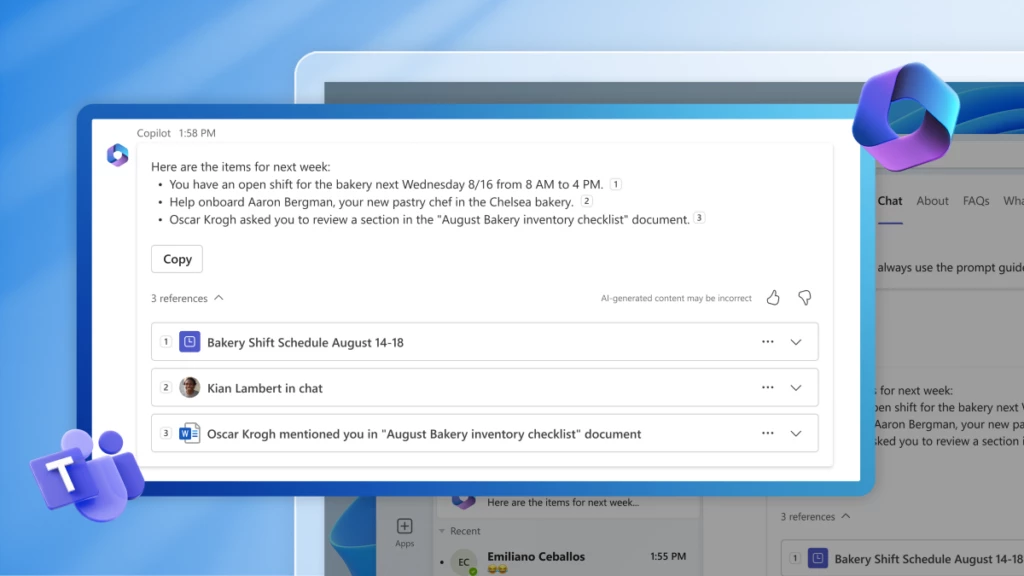Microsoft has unveiled its new Copilot offering, a suite of tools and integrations designed to utilize the capabilities of generative AI to optimize the workloads of service professionals on the frontline.
The introduction of the Copilot offering, within Microsoft’s Dynamics 365 Field Service, is aimed at changing how frontline service managers and technicians handle their tasks. By automating repetitive tasks and bolstering technicians with comprehensive support, Copilot will streamline work orders and facilitate successful job completion.
Incorporating such integrations with Microsoft 365, this initiative equips service managers with the ability to seamlessly create, schedule and manage work orders directly within their Microsoft Outlook and Teams interfaces. Simultaneously, frontline technicians gain access to vital work order details in Microsoft Teams, enhancing their ability to swiftly grasp essential information.
Frontline technicians will benefit from a revamped mobile experience within Dynamics 365 Field Service. This transformation is anticipated to drastically reduce the number of interactions required for key tasks, conserving valuable technician time.
Microsoft expects that the integration of Dynamics 365 Guides will equip technicians with step-by-step instructions for tasks, while access to Dynamics 365 Remote Assist will empower them to engage in real-time troubleshooting with remote experts, facilitated by 3D spatial annotations.
A significant facet of this advancement is the redesign of the work order management system. By decluttering information and bringing pertinent details to the forefront, field service managers can navigate their responsibilities with greater clarity and efficiency.
The impetus behind these developments stems from the continued challenges faced by frontline workers in the midst of labor and supply chain shortages. Often lacking the tools necessary to enhance their work effectively, these professionals find themselves grappling with burnout and potential job changes.
Microsoft’s Work Trend Index data sheds light on the situation, revealing that 50 percent of frontline workers report burnout, while 45 percent contemplate changing employers in the coming year.
Further insights from the index highlight the struggle of over 60 percent of frontline workers who are burdened by repetitive and menial tasks, diverting their attention from more meaningful work. Additionally, a lack of essential resources impedes their efficiency.
Despite these challenges, a majority remain optimistic about the potential of AI to aid them in their roles.






